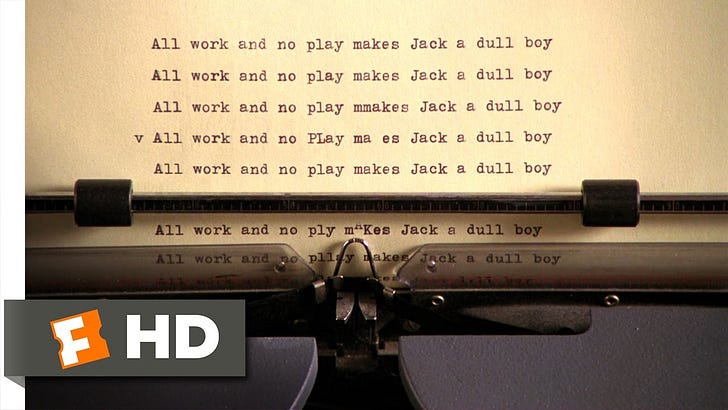In July, I wrote a post about what I thought of as my mid-life crisis (“MLC”).
I was reminded of my post this morning when I read a good column in the Times about the prevalence of mid-life crises. https://www.nytimes.com/2022/09/21/opinion/midlife-crisis.html
It would have helped me to know that an MLC is not at all unusual and to know that if it happens, you get through it. On average, you become happier after mid-life, generally defined as your 40s and early 50s.
The popular culture version of the MLC for men is chasing younger women or buying sports cars or taking up a dangerous hobby like mountain climbing. Since those criteria were alien to me, I was unsure exactly why I was depressed.
MLC’s do not appear to be related at all to material deprivation. In fact, if your basic needs have not been met, if you suffer, for example, from food or housing insecurity, maybe your entire life is a crisis, a battle for survival, and the idea of an MLC seems ludicrous.
And perhaps for those of us able to live in a place and time of general prosperity and who have too many options, too much time on our hands, these “crises” are just a little bit of cosmic payback.
The reigning theory is that an MLC is often provoked by the first inkling of one’s mortality. I described mine as being triggered by the end of The Lord of the Rings and my subsequent nostalgia for a time when many paths of my life had yet to be chosen. The same thing as mortality awareness, just expressed differently.
The next thing I read this morning was Arthur Brooks’ great weekly column on happiness.
https://www.theatlantic.com/family/archive/2022/09/how-be-less-self-centered/671499/
Today, Arthur urged his readers to be external observers rather than internal observers. To think less about how others are observing you and more on observing the people and the scenes around you. And in your external observation seek out anything that can fill you with ”awe.” It could be art or music or nature or reading about another person who did something remarkable or heroic. The test for awe is anything that is greater than yourself.
My last encounter with awe was recent.
In Central Park, there is a Sailboat Pond, and there are periodic regattas of radio controlled miniature sailboats. For the first time ever, I saw, not a sailboat, but a lightning fast miniature speedboat zigzagging the pond, spraying water and leaving a wake. Everyone was looking at it with a smile, including the children who tried to position themselves at the pond’s edge so they could get some of the boat’s splash. The scene made me unaccountably happy, and I think I’ll remember it for a long time. For me this was a moment of awe. I was unaware of anything except what I was observing. In a very positive sense, I disappeared.
I’m naturally introspective, and I’m aware that writing these posts is a form of introspection, of attempting to understand myself better. It’s a form of self-observation, even when I’m writing about something other than myself. But in my writing, my introspection is tightly controlled.
It’s when I’ve lost control of my introspection that I’ve had bouts of mental crises. When the introspection runs amok, when I’m powerless to stop it or call it back, like the famous opening of Yeats’ “The Second Coming:”
“Turning and turning in the widening gyre, the falcon cannot hear the falconer;”
So, if you ever receive a post from me that seems as if my “falcon” is out of control, if, for example, you receive a post that consists entirely of one short phrase repeated over and over, please reach out to make sure I’m okay!





I resonated with moments of awe....that gave me pause and an opportunity to scroll through just my day yesterday, and find a few moments of awe. Thanks for eliciting such soulful thoughts frome today. And Ink ow if the spot in Central Park. I have never been there when it's warm enough for the boats. I can imagine the scene nonetheless.
I don't recall ever having a midlife crisis (I resist shortening everything). My first 2 grandchildren were born before I was 50, but I did not react by feeling I must be getting older. I just enjoyed it. (I once met a woman, then in her 50s, who said she did not want grandchildren anytime soon because it would mean she was getting old. Nonsense, I recall thinking.) My lack of a midlife crisis might also stem from the fact that I have always, and continue to, resist growing up. I've never seen any advantage to it and I was happy to say the only difference between me and a grandson I was raising was 50 years, to which my wife said, "Yes, and he's the adult in the room" but I took pride in that. Now at 74, I cannot compete with my grands on a basketball court, but I can certainly talk trash better than any of them. Perhaps I have not had a midlife crisis because I'm not at midlife yet. The better bet is that I lack the maturity it requires.
If you see me typing the same line over and over, it is most likely that I was doing copy/paste and I fell asleep with my finger on replace. Please don't check on me. A nap is a wonderful thing.